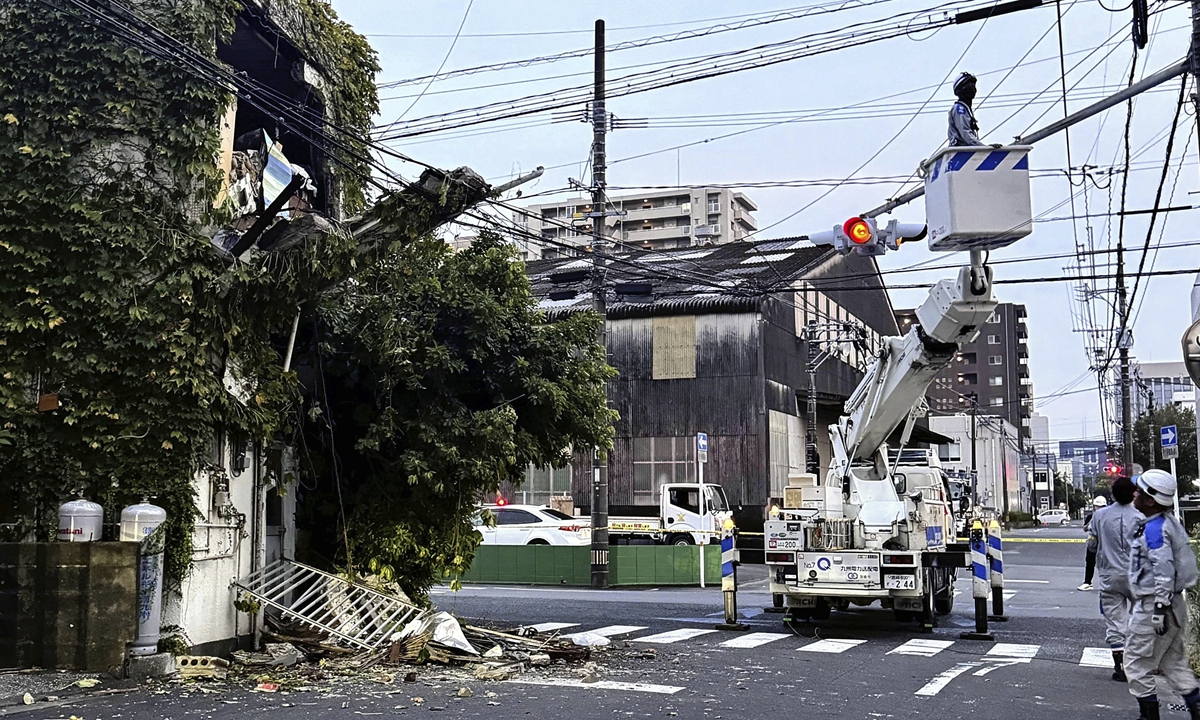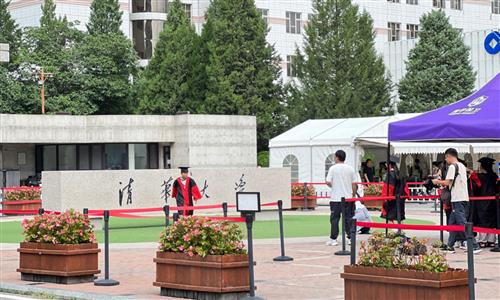
Buildings are damaged as a 7.1-magnitude earthquake struck Miyazaki Prefecture and other areas in southwestern Japan on August 8, the country's weather agency said. Tsunami advisories have been issued for Miyazaki, Kochi, Ehime, Oita, Kagoshima prefectures on the islands of Kyushu and Shikoku. Photo: VCG
Japan's Meteorological Agency recently issued warnings of heightened risk of a major earthquake along the Nankai Trough in the Pacific Ocean. China-based tourism platforms advised tourists to exercise caution when planning trips to the region.
China-based travel platform Trip.com Group told the Global Times on Monday that some travellers have cancelled their hotel bookings in Japan. The refund amounts and cancellation policies largely depend on the terms set by the individual hotels.
"If the flight to Japan booked on Trip.com is cancelled due to force majeure, customers can submit proof of the cancellation from the airlines, we will then coordinate with the relevant hotels to request a free cancellation. If the hotel declines to issue a refund, we will cover the refund amount for orders up to 5,000 yuan ($696.47)," the company said.
Several China-based airlines have announced measures to help travellers mitigate potential financial losses from disruptions caused by earthquake warnings.
A representative from China Eastern Airlines said that the company has issued specific policies for flight cancellations and changes due to the earthquake risk in Japan, with restrictions on certain locations and time periods. Meanwhile, Air China has offered full refunds for tickets purchased within designated time frames, according to a report on Monday by Economic View, a China-based news platform.
"The impact of an earthquake on travel largely depends on the location of the epicenter and the specific destination," Zhang Lingyun, executive editor-in-chief of the Tourism Tribune, told the Global Times on Monday. Zhang said that travellers may consider adjusting their routes to avoid the affected regions.
The frequent earthquakes in Japan can affect tourism, with the extent of the effect largely depending on travellers' risk tolerance, Zhang said. He added that it is crucial for tourists to heed the advice from both the Chinese and Japanese governments.
The Chinese Embassy in Japan has reminded Chinese nationals to closely monitor earthquake developments, weather alerts and disaster prevention information, as well as to follow local authorities' safety instructions, and enhance self-protection awareness.
Japan's Meteorological Agency detected a 7.1-magnitude earthquake near the coast on August 8. A total of 18 aftershocks have been recorded in the vicinity, with magnitudes ranging from 2.9 to 5.3. During the same period, 40 earthquakes were detected nationwide, with magnitudes ranging from 1.7 to 4.8, data from Japan's Meteorological Agency showed.
The agency also noted an increased likelihood of a major earthquake, warning that such an event could trigger strong tremors or tsunamis. It urged local authorities to implement disaster prevention measures.


